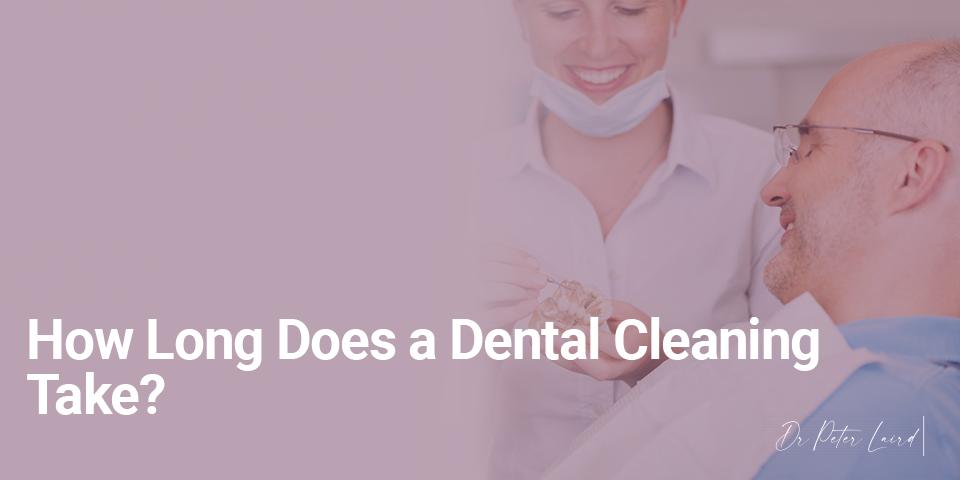It’s awful that so many people are afraid of going to the dentist for dental implant treatment, even if it’s simply for routine cleaning. Professional teeth cleaning is easy, painless, and helpful to your dental health in a variety of ways.
Why Should You Have Your Teeth Cleaned?
There are millions of germs lying on our lips daily. If left unchecked, these bacteria would build a transparent, sticky material known as plaque within hours. If plaque is not removed, the acids in the plaque destroy the tooth’s hard enamel surface, causing a cavity to form. If a cavity develops all the way down the tooth to the gum line and touches the soft tissue, it will cause an infection in the gums.
The health industry recommends brushing your teeth 2x a day and flossing at least once a day to keep plaque at bay. We can reach all of the difficult areas in our mouths, yet plaque will still build based on the food we eat and the quality of our brushing. Professional tooth cleaning comes into play at this point.
Dental Cleaning Process
A dental cleaning typically involves several steps. First, the dentist or dental hygienist will use a small mirror to examine your teeth and gums. They will also use a tool called a probe to check for any signs of gum disease. Next, they will use a scaler to remove plaque and tartar from your teeth. Plaque is a sticky film of bacteria that forms on your teeth, and tartar is hardened plaque that can only be removed by a professional. After the teeth have been scaled, the hygienist will polish the teeth to remove any remaining plaque and stains. Finally, the dentist or hygienist will floss your teeth and may also apply a fluoride treatment to help protect your teeth from decay.
It’s important to note that regular dental cleanings are essential for maintaining good oral health. Plaque and tartar can build up on teeth over time and can lead to tooth decay and gum disease if not removed. Regular cleanings can also help prevent bad breath, tooth sensitivity, and other oral health problems.
Different Types of Dental Cleanings
There are several different types of dental cleanings that a dentist may perform, including:
- Routine dental cleaning: A routine cleaning is a basic cleaning that is performed to remove plaque and tartar from your teeth. This type of cleaning is typically performed every six months and may take between 30 minutes to an hour.
- Deep cleaning: A deep cleaning, also known as scaling and root planing, is a more extensive cleaning that is performed to remove plaque and tartar from the roots of your teeth. This type of cleaning may be recommended if you have gum disease or other oral health problems. A deep cleaning can take between one and two hours, depending on the extent of the problem.
- Periodontal cleaning: A periodontal cleaning is a specialized cleaning that is performed to remove plaque and tartar from the pockets around the teeth. This type of cleaning may be recommended if you have periodontal disease, a more advanced form of gum disease. A periodontal cleaning can take between one and two hours, depending on the extent of the problem.
How Long Does it Take to Have a Dental Cleaning?
A dental cleaning takes roughly 30 to 40 minutes for a patient who has good oral health and practices proper oral hygiene at home. The length of time depends on the state of your teeth and the pace of the hygienist. Always remember that a dental cleaning entails more than just washing and polishing your teeth:
- X-rays are performed.
- Your hygienist will look for periodontal (gum) disease symptoms in the area between your teeth and gums.
- To ensure that your teeth, tongue, gums, and other oral cavities are healthy and disease-free, your dentist will inspect them.
Why is Dental Cleaning Taking So Long?
So, what factors influence how long it takes you to brush your teeth? Several things might be at play:
The state of your teeth: Plaque, tartar, and stains are removed from your teeth during a professional dental cleaning. How often you brush/floss your teeth affects the amount of plaque and tartar buildup. The more floss you use between your teeth, the less plaque and tartar you’ll have. Stains can form as a result of normal eating and drinking, but if you smoke or drink a lot of coffee, your teeth will be stained more.
Periodontal disease: When the pocket or space between each tooth and the surrounding gum tissue becomes infected, the gum tissue pushes away from your teeth, causing periodontal disease. To eliminate gum disease, deep periodontal pockets must be properly cleaned. Root planing and scaling is a more thorough cleaning than usual; therefore, it takes longer. A professional (periodontist) may be required in situations of severe periodontal disease.
Your level of anxiousness: Dental treatment for apprehensive people needs a bit of extra time and patience. If your dentist and hygienist are aware that you are nervous, they will operate slower to guarantee your comfort and take the time to explain what is happening during the process. Some dentists perform this regardless of a patient’s level of nervousness. Dental cleaning can be made simpler with sedation.
What Are the Advantages of Getting Your Teeth Cleaned?
There are lots of benefits from cleaning your teeth. When you’re done with cleaning your teeth:
- your teeth will seem brighter and feel more fresh and smooth.
- The plaque will be removed, and your breath will be fresher.
Even while this is a great short-term advantage, the actual goal is to keep your teeth healthy and prevent periodontal disease. It’s far easier to develop excellent habits at home, visit the dentist twice a year, and be proactive rather than reactive.
